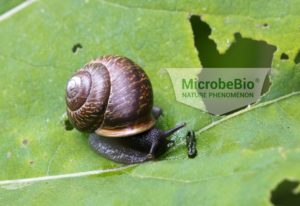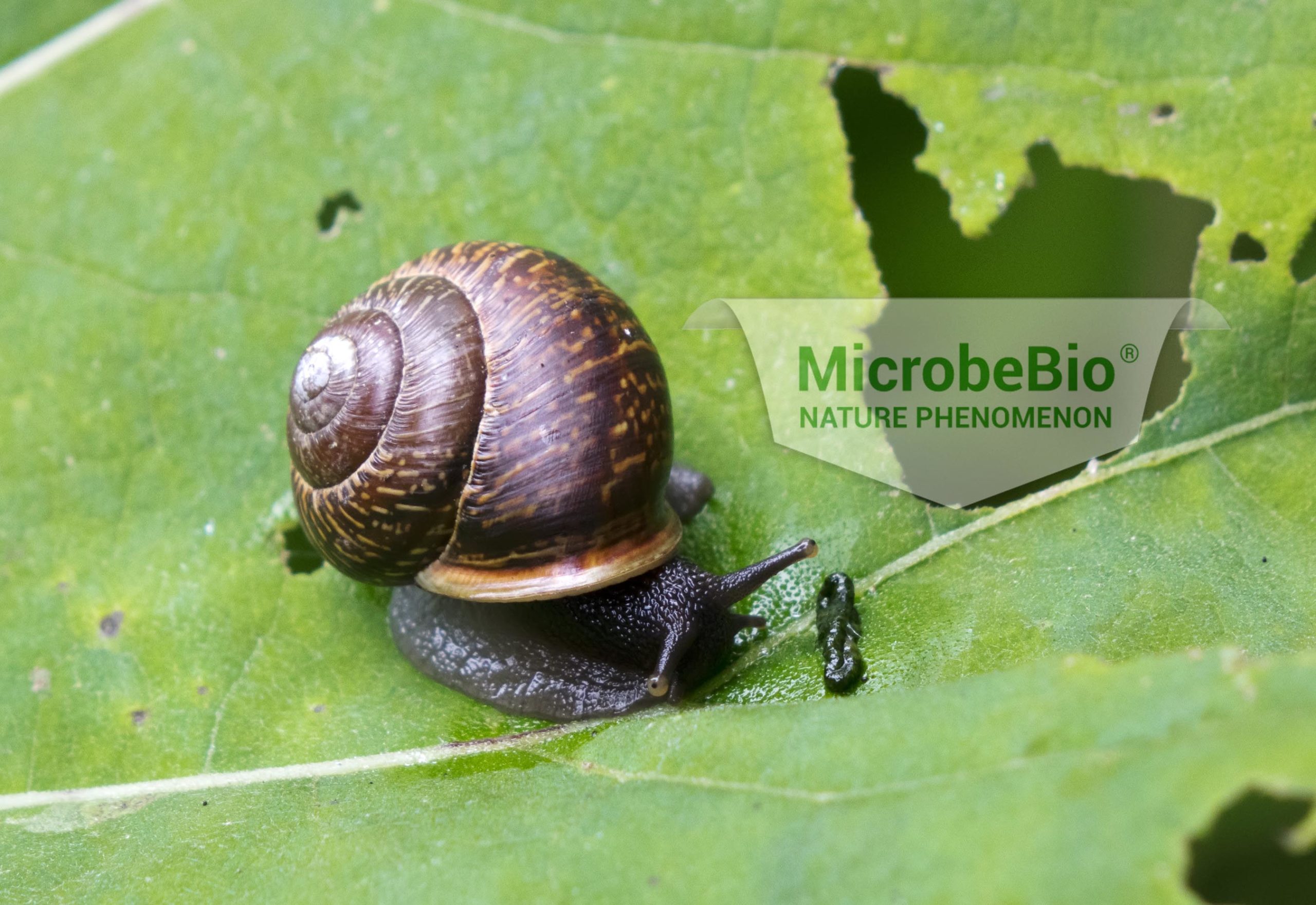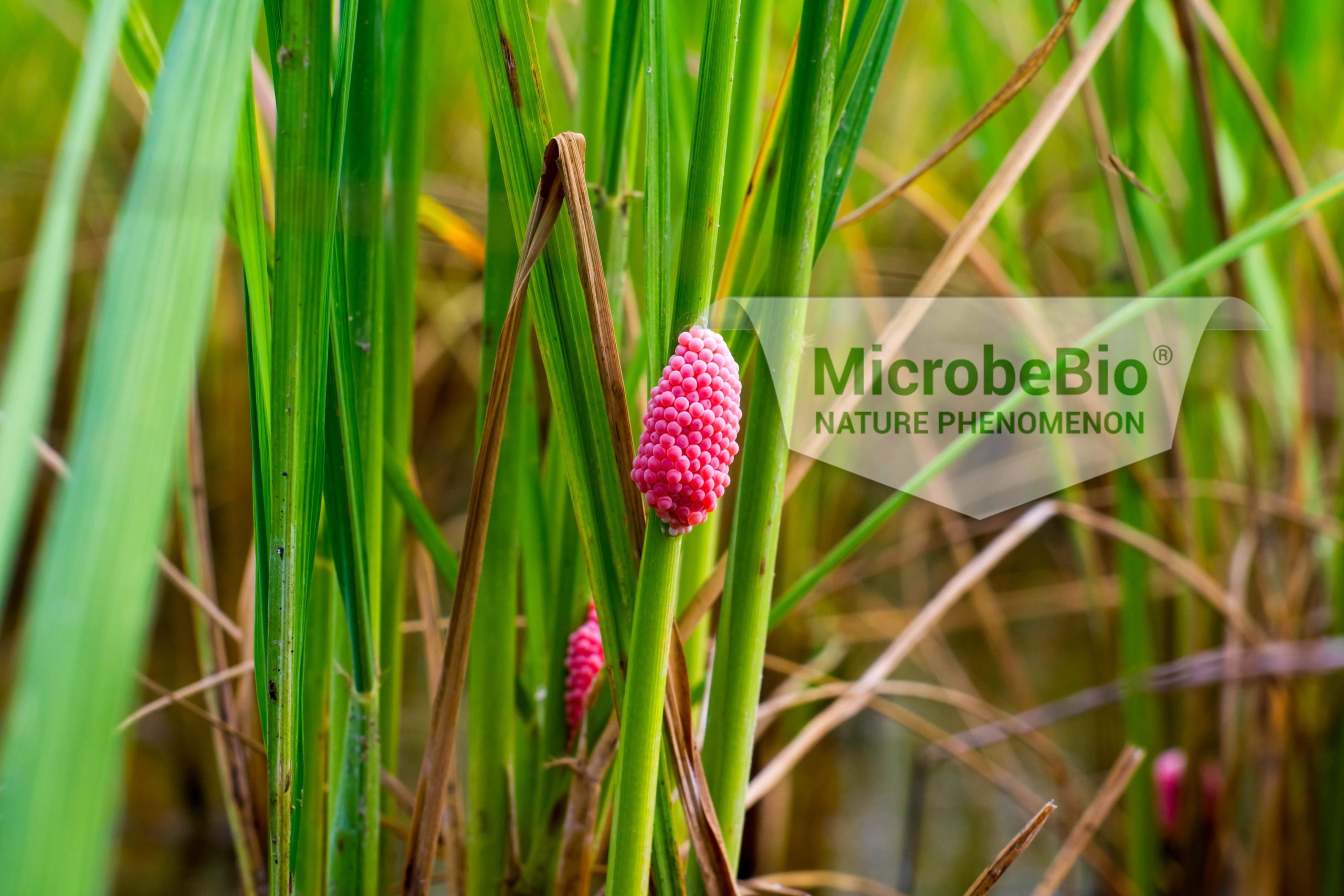Microbebio organic solution to control golden snail
In reality, there are over 100 species of golden apple snails worldwide. Two particular species, the golden apple snail and the apple snail, are currently the focal point of attention for rice cultivation in the water-rich regions of Asia and Southeast Asia.
ISSUE:
The golden apple snail is the primary agent responsible for damaging rice crops by feeding young rice plants and cutting them at the base where the growth begins. Without control measures, these snails can destroy thousands of square meters of rice fields in just one night. This results in a yield reduction of over 50% for the season.
WHY AND CAUSES:
The golden apple snail can proliferate and spread through traditional waterlogged rice cultivation or flood events. When the rice fields are dry and in drought conditions, the snails hide in the mud for up to six months. The period after the introduction of water into the fields or after floods are when the golden apple snails experience their strongest growth phase.
HOW DOES THE PRODUCT WORK?
The product contains exclusive and highly effective strains of microorganisms specifically targeting the golden apple snails or apple snails from their egg stage. Through the technology of isolated microorganisms, the product attacks the snails’ epidermal layers and digestive systems. New enzymes are generated to continuously target the growth and excretion activities of the golden apple snails or apple snails. The application of the product depends on the level of infestation by the snails in the rice fields or the environment. The product should be applied at double or triple the normal dosage in the first year. Once the reproductive development of the snails is under control, the product can be applied at the regular dosage recommended by the manufacturer.
Additionally, why should Microbebio organic fertilizer be used? Conventional chemical fertilizers, when used, have the following drawbacks:
Arid soil containing toxins.
Saline soil with washed-out nutrients and poor carbon absorption.
Oxygen-depleted soil with poor water retention and degraded soil microorganisms.
Weak disease resistance and susceptibility to pest attacks lead to increased use of plant protection chemicals.
Low productivity, stunted plants, and low nutrient content.
By using Microbebio:
The soil structure becomes healthy and nutrient-rich.
Salinity is neutralized, nutrient content increases and carbon transformation ability is enhanced.
Mineral-rich soil with good water retention and enhanced soil microorganisms.
Enhanced disease and pest resistance, reducing the need for plant protection chemicals.
Increased productivity, with fruits and vegetables being fresher, tastier, and more nutritious.
Furthermore, chemical fertilizers are expensive, require more processing, and have long-lasting negative consequences. This is not to mention the high costs of transportation and storage. On the other hand, farmers only need a small amount of Microbebio to treat their vast lands while achieving significantly higher yields. The transportation and storage costs for Microbebio are much lower, and the resulting fruits are fresh and delicious.
Therefore, Microbebio organic microbial fertilizer is the most cost-effective solution currently available. Microbebio organic microbial fertilizer is compatible with various types of cultivated soil and crops, helping farmers minimize or even eliminate the use of plant protection chemicals such as chemicals and pesticides. Let’s join Microbebio in aiming to transform agriculture into a positive and sustainable direction where farmers can achieve outstanding yields without investing excessive effort and costs. This will contribute to a cleaner world with pure water, resembling the ancient forests that have stood for thousands of years.

